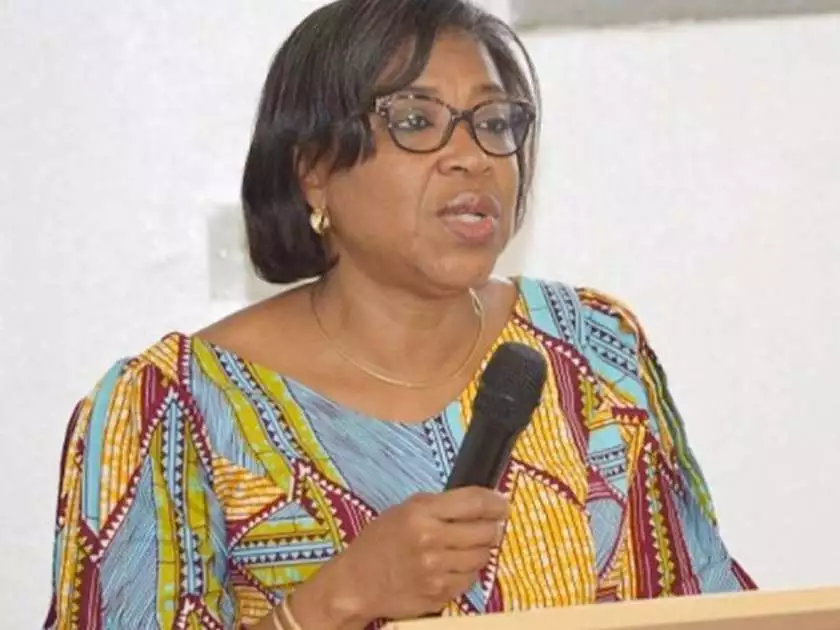The Debt Management Office says that the $22.76bn already approved as a loan by the National assembly is yet to be utilized. According to Patience Oniha, the DMO boss, they are still studying the conditions attached to the loan and, therefore, have not signed for the loan.
Recall that the National Assembly last March approved additional loan request from the presidency to the tune of $22.76bn
“We have not started drawing these loans because there are processes to be followed. All the agreements have not been signed and the utilization of these loans has conditions,” Oniha said.
“What was submitted in 2016 was a request for $30 billion concessional loans. But the lawmakers cherry-picked and approved. The balance was the $22.7billion which the Federal Government submitted to the National Assembly in 2019.
“These are concessional loans with the interest of about 3 percent and tenor of about 30 years. We need to let Nigerians know that the lenders will not give Nigeria $22.7 billion at once.
“These loans are disbursed according to milestones. That is the loans are released based on the projects they are meant for after the lenders’ consultants have done some evaluation. It does not mean that once the $22.7billion was approved, we will just be given.
“We sought approval for the $22.7billion loans from the National Assembly because the law says if you are borrowing on concessional terms, you go to the National assembly.
“The DMO Act and the Fiscal Responsibility Act do not allow the DMO to borrow without the approval of the Executive and the National Assembly
“For instance, if we are doing Eurobonds, the parties will not take you to the market without the legal backing of the relevant arms of government including the legislature.
“Every year, we draw the budget and you see new borrowing. This is because there is a deficit which means our revenues are short of expenditures.
“When we are talking about the growth in the debt stock, we forget the origin. Once you see a deficit in the budget, you have to look for funds to finance it.
“What is different now and makes it worse is that the revenue is lower. During the COVID-19 pandemic, the price of oil per barrel dropped to $16. Some oil-producing countries were even offering a 50 percent discount. With the pandemic, our budget deficit widened.
“What has COVID-19 pandemic done to us? If you asked in January and February this year, In 2020 Budget, we were going to borrow about N1.6 trillion to cope with the deficit for the 2020 Budget.
“But with COVID-19 pandemic it is now about N4.2 trillion because our revenue dropped by about 50 percent,” Oniha said.
According to her, Nigeria’s not the only country borrows and nobody was out to mortgage the future of the next generations.
“It is not only Nigeria that borrows. I am sure you know how indebted the United States is. The fact that some governments are run on borrowing does not mean that borrowing is wrong.
“Sometimes a government may have a surplus but it will borrow to keep its markets open. This is the case with Russia, the UK, Qatar, and Germany.
“We had oil price at N110 per barrel and we were producing at 1.8 million barrels per day during the administration of the Peoples Democratic Party (PDP). But we were still borrowing because the budget had deficits, we still borrowed.
“Since we came out of the London-Paris Clubs’ loans, there are more controls around external borrowings. After the exit of London-Paris loans, we decided that we will take concessional loans. These loans are not used to finance budget but to fund capital projects.
“I know debt has moved from an economic subject to a political subject. I think it is one of the political tools to say this government has failed or has sold future generations. Some alleged that we are enslaving future generations.
“Successive governments have always been borrowing. The debt sticks out because the revenue is low. Our borrowings are cumulative and attributable to many governments. We are not out to sell future generations or mortgage future generations. Some loans have 3% interest with a tenor of about 30 years.
“We have also been paying back some loans. We should try to be analytical and understand economic dynamics which made some of these loans necessary.”
Discover more from The Source
Subscribe to get the latest posts sent to your email.








